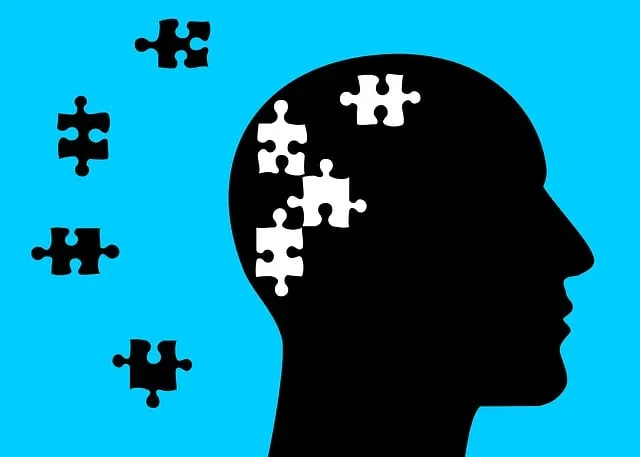To effectively reach Aurora residents, Kaiser mental health classes focus on understanding local needs, engaging community leaders and residents, incorporating evidence-based practices, and cultivating cultural sensitivity. They tailor programs like Depression Prevention to Aurora's customs, fostering open discussions and reducing stigma. Interactive workshops on themes like Conflict Resolution and Trauma Support, combined with emotional well-being promotion, enhance connection. Robust evaluation methods track participation, feedback, and mental health improvements, ensuring the program's relevance and effectiveness based on community needs.
In the spirit of enhancing community well-being, this article explores the implementation of successful community outreach programs, focusing on mental health initiatives in Aurora. By understanding local needs, designing culturally sensitive Kaiser mental health classes tailored to Aurora residents’ unique culture, and employing effective engagement strategies, these programs thrive. We delve into data-driven measures to assess impact, ensuring continuous improvement. This comprehensive approach not only benefits individuals but also fosters a stronger, healthier Aurora community.
- Understanding Community Needs for Effective Outreach
- Designing Mental Health Classes Tailored to Local Culture
- Engaging Aurora Residents: Strategies for Success
- Measuring Impact and Adjusting Programs for Continued Growth
Understanding Community Needs for Effective Outreach

Effective community outreach programs require a deep understanding of the unique needs and challenges present within the target area. In the context of Kaiser mental health classes in Aurora, identifying local priorities is key. For instance, a vibrant city like Aurora might face distinct issues compared to more rural areas. Therefore, outreach initiatives should be tailored to address specific concerns, such as high stress levels among working adults or lack of access to emotional healing processes for marginalized communities.
By engaging with local residents and community leaders, organizations can gain valuable insights into the prevalent mental health topics and associated support needs. Incorporating evidence-based practices like Mindfulness Meditation and Social Skills Training into outreach programs can be highly beneficial. These strategies not only equip individuals with coping mechanisms but also foster a sense of belonging and connection within the community, ultimately enhancing overall well-being.
Designing Mental Health Classes Tailored to Local Culture

When designing mental health classes for communities like Aurora, it’s crucial to tailor programs that resonate with local cultural nuances. The Kaiser mental health classes in Aurora have been successful by incorporating community input and focusing on issues relevant to folks in the area. This involves understanding the specific challenges and beliefs surrounding mental illness within the community. For instance, addressing Depression Prevention can be more effective when taught through a lens that considers local customs and traditions, ensuring the approach is culturally sensitive and accessible.
The goal of these classes isn’t just to impart knowledge but also to foster a safe space where individuals can openly discuss their experiences, challenge Mental Illness Stigma Reduction Efforts, and learn from each other. Incorporating cultural elements into healthcare education also strengthens the relationship between Healthcare Provider Cultural Competency Training and the community, leading to better outcomes for those seeking mental health support.
Engaging Aurora Residents: Strategies for Success

Engaging Aurora residents in community outreach programs requires a thoughtful and inclusive strategy. To ensure success, organizations like Kaiser mental health classes Aurora should focus on creating accessible and engaging events that cater to diverse interests and needs. One effective approach is to offer a variety of workshops covering topics such as Conflict Resolution Techniques and Trauma Support Services, addressing common concerns within the community. By making these sessions interactive and informative, residents are more likely to participate and share their experiences.
Additionally, incorporating Emotional Well-being Promotion Techniques can foster a sense of belonging and connection. Activities that encourage open dialogue, stress reduction, and mindfulness can significantly impact the overall mental health of Aurora’s residents. Tailoring these programs to resonate with different cultural backgrounds and age groups will enhance participation rates, ultimately strengthening the community’s resilience through shared learning and support.
Measuring Impact and Adjusting Programs for Continued Growth

Measuring the impact of community outreach programs is a vital step to ensure their long-term success and effectiveness. Organizations like Kaiser Mental Health Classes Aurora have recognized this, incorporating robust evaluation methods into their initiatives. By regularly assessing the outcomes, they can identify what works best for different communities, ensuring tailored interventions that address specific needs. This data-driven approach allows them to refine programs, making necessary adjustments to maximize benefits.
For instance, Kaiser might track participation rates in their mental wellness classes, evaluating feedback from attendees and measuring improvements in local community members’ mental health and self-awareness through risk assessment tools. Incorporating Self-Awareness Exercises into these programs has proven effective, fostering a sense of empowerment among participants. This continuous evaluation process enables Aurora’s mental health professionals to adapt their strategies, ensuring the program remains dynamic and relevant, catering to evolving community requirements.
Implementing community outreach programs, like Kaiser mental health classes in Aurora, requires a deep understanding of local needs and cultural nuances. By designing tailored programs that engage residents effectively, as demonstrated through successful strategies outlined in this article, organizations can foster significant positive impacts. Continuous measurement and adjustments ensure these initiatives remain relevant and grow over time, addressing the evolving mental health landscape in Aurora.






